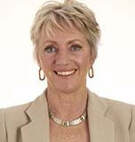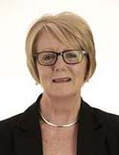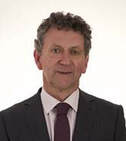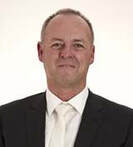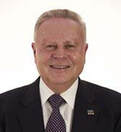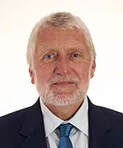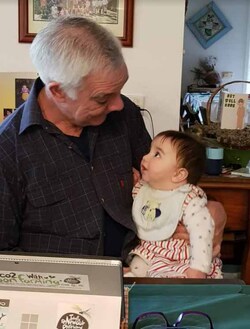 Cr Michael Whelan and grandson Thomas
Cr Michael Whelan and grandson Thomas THERE are three reasons why I’m passionate about action on climate change. Their names are Seamus, Eliza and Thomas, and they’re my grandchildren. Little Thomas and his peers around the world have got more at stake in this business than anyone in this room. That’s what it’s all about. It’s about trying to turn this around because we are heading to disaster if we don’t.
This is an incredibly important issue because we are facing an existential crisis in the world. Business as usual won’t do it. We’re already seeing the consequences of 1 degree of global warming. Locally we’ve lost almost 50 metres of coastline at Inverloch. Cowes East is under attack. What’s happening at Jam Jerrup is scaring the hell out of the locals.
| It’s not just a Bass Coast issue but we need to play our role. The Bass Coast Action Network has lodged a petition with over 1100 signatures calling for local action on climate change. It shows strong community support for this initiative. Using the term ‘emergency’ signals that business as usual won’t do it any more. The strategy is to start with local governments because it’s easier to find innovative councils to be early movers than it is to get state and national governments to respond. | A global movement Bass Coast Shire becomes the 31st council in Australia to declare a climate emergency, joining Melbourne, Sydney and regional councils with similar coastal issues, including Noosa and Byron. Globally, more than 900 jurisdictions – including the UK Parliament – have declared a climate emergency, committing to a range of actions to reduce carbon emissions. |
We can’t under-estimate the impacts. The severe heat waves are occurring every year. One of the big insurance issues is the drying of footings from prolonged drought. Our rainfall is becoming increasingly unreliable.
Bass Coast was quite early in developing a climate action plan – 2014 – but it’s been honoured more in the breach than the observance. I haven’t found evidence of the reporting of our annual emissions, which is required under the action plan, or the development of a carbon plan. We need to do that and we need to do it quickly.
I see this going forward under the leadership of our CEO but this is a community plan we’re talking about. This is about the council consulting the community. It’s engaging with the people who have taken a strong interest and are here tonight, it’s about engaging with business, it’s about engaging with our farmers and agriculture. Everyone has a part to play. It’s not about being adversarial, it’s about being co-operative.
I quote Noel Hutley, SC, a barrister from Sydney who points out that directors are under an obligation to inform themselves of the risks of climate change, to disclose the risks as part of their financial reports and to take practicable steps to mitigate the risks. It’s happening all round the world.
There’s been a view that we don’t need to do that in local government. In February council was briefed by Sarah Barker, the special counsel from Minter Ellison, who made it very clear that there is a strong expectation that council will undertake strong climate change governance.
We talk about the cost of climate change action. As was pointed out by Nicholas Stern back in early 2000s, and by Ross Garnaut in 2007, the cost of inaction far outweighs the cost of action. We need to act and we need to act quickly. We need to play our role.
We need to say there’s hope. Otherwise we just give up. That’s what I’m saying with this. We go out there and look at what we CAN do. Don’t call it a battle, don’t call it a war, because that sort of adversarial stuff doesn’t help. We sell the hope and we enlist people onto this campaign.
This is an edited transcript of Cr Whelan’s introduction to a notice of motion to declare a climate emergency in Bass Coast.
The motion was passed 7-0 at the meeting of August 21.
For: Crs Whelan, Rothfield, Kent, Le Serve, Ellis, Tessari and Fullarton.
Abstained: Crs Larke and Brown.
